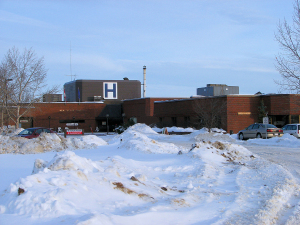by
John R. Fischer, Senior Reporter | April 24, 2020

HHS has provided $165 million in funding to rural hospitals batting the COVID-19 virus, in addition to funding they have received through the CARES Act.
The U.S. Department of Health and Human Services (HHS) has offered close to $165 million in aid to rural healthcare providers battling the ongoing COVID-19 pandemic, in conjunction with funds offered through the Coronavirus Aid, Relief, and Economic Security (CARES) Act.
Granted through the Health Resources and Services Administration, the HHS sum will help support 1,779 small rural hospitals and offer additional funding to 14 HRSA-funded Telehealth Resource Centers working to provide telemedicine to rural and underserved areas.
"Today's funding gives rural hospitals critical support to build up their capacity for fighting COVID-19 in their communities, including through further expansions of telehealth, more purchases of PPE, and boosting testing capacity," said HHS Secretary Alex Azar in a statement. "This funding, secured by President Trump from Congress, will build on the historic expansion of telehealth undertaken by the Trump Administration to help all Americans access the care they need during the pandemic."



Ad Statistics
Times Displayed: 1227
Times Visited: 6 Fast-moving cardiac structures have a big impact on imaging. Fujifilm’s SCENARIA View premium performance CT brings solutions to address motion in Coronary CTA while delivering unique dose saving and workflow increasing benefits.
The HHS award builds on $50 billion in general funding offered to all providers through the CARES Act, of which $30 billion has already been distributed. An additional $10 billion has been specified for rural providers through the legislation.
The HRSA Federal Office of Rural Health Policy (FORHP) received $150 million through the CARES ACT that will be used to assist hospitals funded through the Small Rural Hospital Improvement Program. HRSA also plans to supply more than $11.5 million to the same 14 TRCs, which provides expertise and customized telehealth technical support throughout the U.S. and its territories. The TRCs will use the funding for hands-on technical support to aid in equipment acquisition, payment policy, system design, and licensing and credentialing.
"As the nation combats COVID-19, telehealth is increasingly instrumental and effective as a tool to provide healthcare for patients across the country, especially the most vulnerable," said HRSA Administrator Tom Engels in a statement. "Providing the TRCs with this additional funding enables them to expand their ability to provide technical assistance to communities in need."
Rural providers operate on thinner margins and are less profitable than their urban counterparts, putting them at greater risk from declines in revenue and increases in COVID-19-related expenses.
The $10 billion allocated in the CARES ACT will be distributed as early as next week on the basis of operating expenses.
The additional $20 billion promised in the general distribution of the CARES Act will be distributed at a future point.

